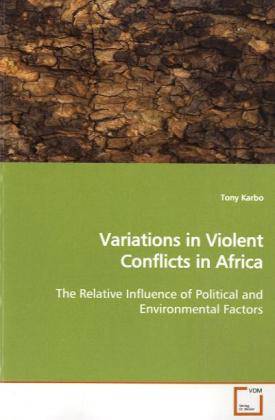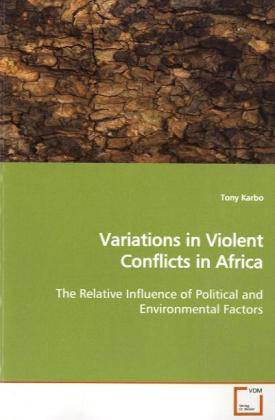
- Afhalen na 1 uur in een winkel met voorraad
- Gratis thuislevering in België vanaf € 30
- Ruim aanbod met 7 miljoen producten
- Afhalen na 1 uur in een winkel met voorraad
- Gratis thuislevering in België vanaf € 30
- Ruim aanbod met 7 miljoen producten
Zoeken
Variations in Violent Conflicts in Africa The Relative Influence of Political and Environmental Factors
The Relative Influence of Political and Environmental Factors
Tony Karbo
Paperback | Engels
€ 77,95
+ 155 punten
Omschrijving
Attempts have been made by researchers to develop an explanation of violent conflict. Specifically, attempts to link environmental scarcity to violent conflict have gone through three generations of scholarship. Although findings have led to new insights in our understanding, a direct correlation between them is yet to be established. This research draws on findings linking theory of violent conflict to cases in three Kenyan provinces with a view to further develop this new understanding. The first part of the book discusses relevant theories about sources and dynamics of conflicts. The second part explores the relationship between environmental factors and violence. It builds on the theoretical and conceptual frameworks on the causal dynamics relating to Environmental scarcity and violent conflict. Variations in Violent Conflicts in Africa: The Relative Influence of Political and Environmental Factors will be a useful text for students in Peace and Conflict Studies, Political Science, Environmental Studies and other related disciplines.
Specificaties
Betrokkenen
- Auteur(s):
- Uitgeverij:
Inhoud
- Aantal bladzijden:
- 300
- Taal:
- Engels
Eigenschappen
- Productcode (EAN):
- 9783836490689
- Verschijningsdatum:
- 16/12/2008
- Uitvoering:
- Paperback
- Formaat:
- Trade paperback (VS)
- Afmetingen:
- 152 mm x 229 mm
- Gewicht:
- 403 g

Alleen bij Standaard Boekhandel
+ 155 punten op je klantenkaart van Standaard Boekhandel
Beoordelingen
We publiceren alleen reviews die voldoen aan de voorwaarden voor reviews. Bekijk onze voorwaarden voor reviews.











